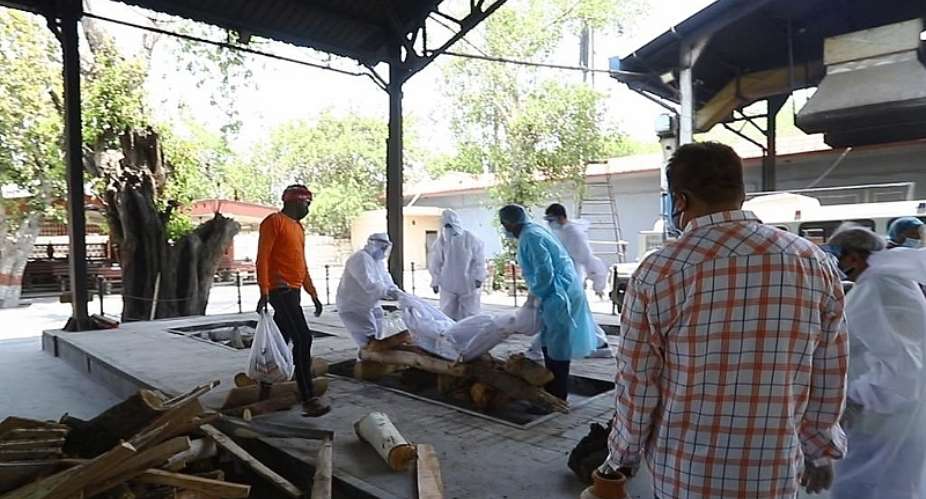India's topmost medical research body said that it is attempting to launch the world's first Covid-19 vaccine on August 15. However, health experts have questioned the short timeline.
The order by Balram Bhargava, director general of the Indian Council of Medical Research (ICMR) on Friday directs 12 hospitals selected for carrying out clinical trials of Covaxin to ensure that the subject enrolment is initiated in the next few days.
Ambitious target
“It is envisaged to launch the vaccine for public health use latest by 15 August after completion of all clinical trials. Bharat Biotech is working expeditiously to meet the target. However, the final outcome will depend on the cooperation of all clinical trial sites involved," said Bhargava.
“Non-compliance will be viewed very seriously,” Bhargava wrote in his letter
The candidate vaccine, Covaxin, is developed by Bharat Biotech, a Hyderabad-based pharmaceutical company, in partnership with the National Institute of Virology, an ICMR laboratory.
Bharat Biotech is a drug manufacturer that delivers 4 billion doses around the world for infections like rotavirus, hepatitis, Zika, Japanese encephalitis and others.
But Covaxin is yet to enter the clinical trials phase, a stage that other vaccine candidates across the world have already raced to. The earliest any of these expect to determine safety and efficacy is not until second quarter of next year.
It is for this reason health experts have expressed concern about the crunched timeline and even criticized this hurried approach. Many maintained that any clinical trial would take at least one year to complete all essential steps that include a three-phased trial followed by safety efficacy study, side-effect profile and antibody analyses.
Experts and investigators express concern
“It will be a very challenging and difficult task, considering that we have to look at both efficacy and safety of any vaccine that is introduced,” said Randeep Guleria, the head of the clinical research group of the national task force for Covid-19.
What's more data about the vaccine's preclinical performance has not been made public yet.
Investigators point out that vaccine development timelines are taxing and tedious beginning from virus isolation to vaccine licencing. The Ebola vaccine, for instance, also saw an expedited global response. Work commenced in 2014 resulting in the vaccine licensed after five years.
“Developing an effective vaccine is a time-consuming process. Recruitment of participants in itself can take months even if we try to expedite everything like we are doing for Covid-19,” said Anant Bhan, a researcher in bioethics and global health.
“Even with accelerated timelines, this seems rushed, and hence with potential risks, inadequate attention to the process.”
The number of cases of the coronavirus disease in India is more than 625,000 and the country's death toll is above 18,000.
A global race is underway to develop and mass-produce an effective vaccine to counter the new, deadly, and highly infectious coronavirus disease, COVID-19 that has brought much of the world to a standstill.
There are more than 100 vaccines in preclinical development by pharmaceutical companies, academic institutions, government agencies, and others.
Seventeen vaccine candidates, across at least ten countries, are already undergoing clinical trials. However, no vaccine has yet been approved for commercial use.





 Avoid pre-registered SIMs, buyer and seller liable for prosecution – Ursula Owus...
Avoid pre-registered SIMs, buyer and seller liable for prosecution – Ursula Owus...
 Election 2024: Mahama has nothing new to offer Ghanaians, Bawumia is the future ...
Election 2024: Mahama has nothing new to offer Ghanaians, Bawumia is the future ...
 OSP files fresh charges against ex- PPA Boss
OSP files fresh charges against ex- PPA Boss
 Withdraw unreasonable GH¢5.8m fine against former board members – ECG tells PURC
Withdraw unreasonable GH¢5.8m fine against former board members – ECG tells PURC
 Akroma mine attack: Over 20 armed robbers injure workers, steal gold at Esaase
Akroma mine attack: Over 20 armed robbers injure workers, steal gold at Esaase
 Those who understand me have embraced hope for the future — Cheddar
Those who understand me have embraced hope for the future — Cheddar
 Ghana will make maiden voyage into space should Bawumia become President — Chair...
Ghana will make maiden voyage into space should Bawumia become President — Chair...
 Train crash: Despite the sabotage, we shall not be deterred and will persevere —...
Train crash: Despite the sabotage, we shall not be deterred and will persevere —...
 Tema-Mpakadan railway project a perversion of the original viable concept design...
Tema-Mpakadan railway project a perversion of the original viable concept design...
 Train crash: Elsewhere, everyone involved in the test will either be fired or re...
Train crash: Elsewhere, everyone involved in the test will either be fired or re...
